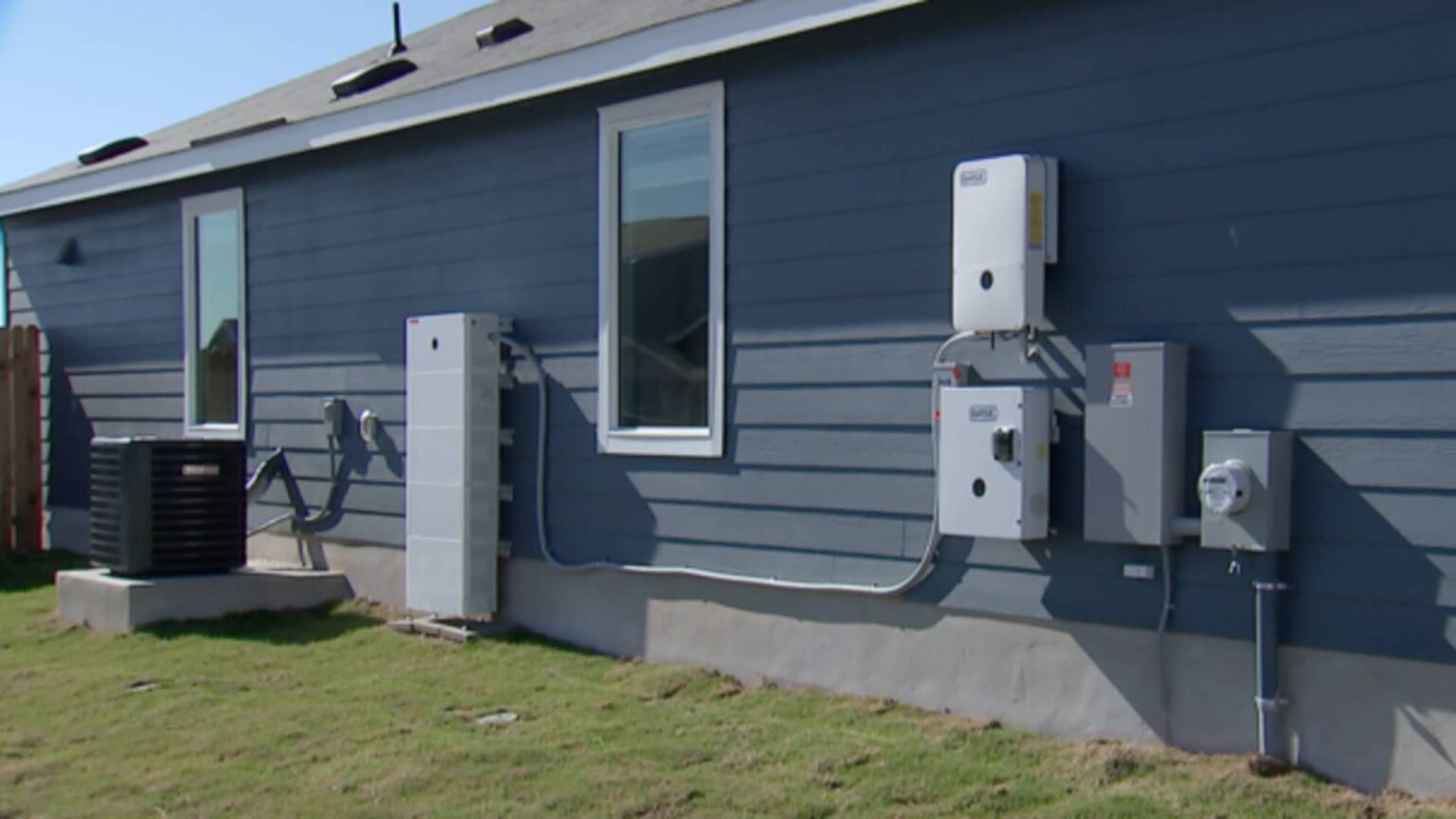
In a warming world with increasingly extreme weather events, homeowners are turning to backup batteries for relief and peace of mind. But the backup only lasts only so long, and there’s a bigger problem at play: aging power grids.
Enter the virtual power plant, managed through a cloud-based system. It’s a fertile market for a number of companies as consumers look for more reliability, especially in areas prone to extreme temperatures and storms.
Base Power, headquartered in Austin, Texas, is a virtual power plant and hardware company that provides battery backup to homeowners. The startup manages the batteries, and virtually controls the power that’s going in and out.
“We install our batteries on our customers’ homes. When the grid is up and running, we use those batteries to support the power grid,” said Base CEO Zach Dell. “When the grid goes out, our customers get those batteries to back up their home. We’re also able to save our customers on the order of 10 to 20% a month on their electricity bills.”
Unlike Tesla and Enphase, Base doesn’t sell home backup batteries. Rather, it rents the batteries to homeowners, providing the hardware, software, installation, operations and electricity. Essentially, it’s a battery-based energy company.
“We own and operate it,” Dell said. “We handle all the maintenance. We take care of the system like it’s ours.”
That control allows Base to manipulate how the battery is used, specifically accessing cheaper power and passing that savings on to the consumer. Base charges the battery from the grid when demand is low, typically during overnight hours. When demand is at its peak — summer evenings and winter mornings — Base sells power, discharging the battery to support the grid.
For an upfront fee of $595 and then about $19 a month, homeowners get access to reliable power, provided by Base. That power is generated by several sources, including wind, solar, natural gas and coal. About half of Base’s customers have solar, according to the company, which lowers their costs even more and allows them to sell that power back to Base.
A company spokesperson said Base compensates customers for the power they sell back, calculated as the real-time wholesale energy price plus an additional 3 cents per kilowatt hour. Buyback rates may vary depending on market conditions and other factors.
Base is now serving one of the nation’s largest homebuilders, Lennar, which is also an investor. Base installs batteries during the construction process in roughly 20 Lennar outage-prone communities in Texas.
Stuart Miller, Chairman and co-CEO of Lennar, said it’s not just about making money.
“It’s, are we going to be able to improve the overall stature of the home building business, as it seeks to address the markets that are stressed and having problems?” he said. “Utilities and electricity is a part of that.”
Base has raised a total of $268 million from investors including Lennar, Thrive Capital, Valor Equity Partners, Lightspeed Venture Partners and Andreesen Horowitz.
Base recently announced its first utility partnership near San Antonio. Dell said the company hopes to soon expand outside of Texas. However, the batteries are made in China, and Dell said he expects to see an impact from tariffs.
— CNBC producer Lisa Rizzolo contributed to this piece.
https://www.cnbc.com/2025/04/29/why-lennar-is-betting-on-base-which-is-building-home-backup-batteries.html


